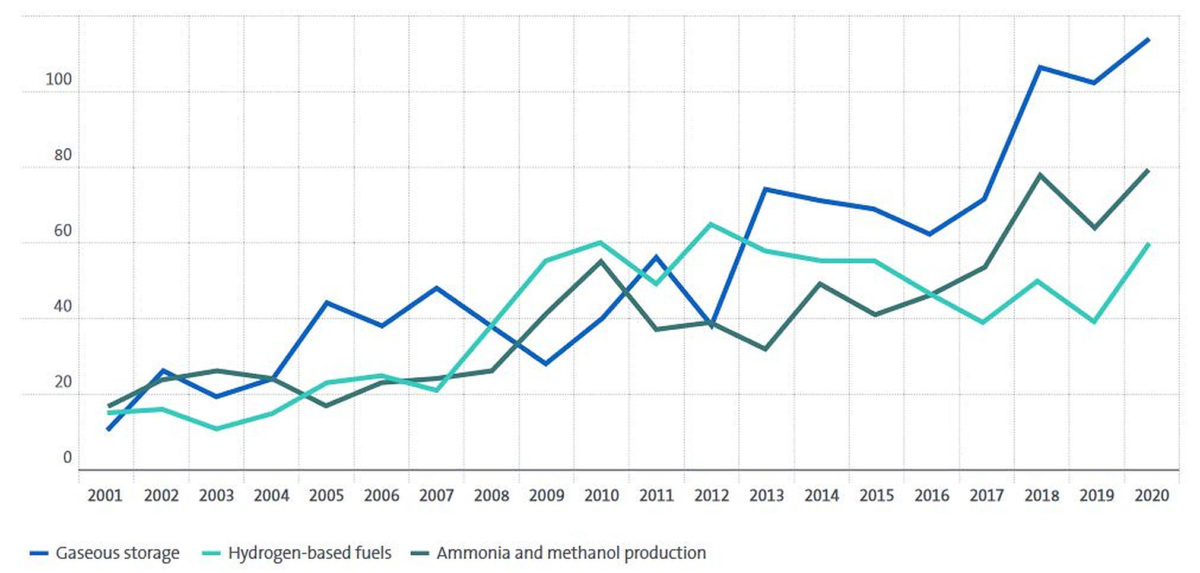Europe and Japan led in terms of new global hydrogen patent applications in the 2011-20 period, according to a new report by the IEA and the EPO.
Japan was the region in which the number of new hydrogen patents rose at the fastest pace throughout the 2011-20 period, with compound average growth rates of 6.2%. The United States is the only part of the world in which the number of patents decreased over the same period.
South Korea and China accounted for around 6% and 4% of total patents, but they showed solid growth, with average annual growth rates of 12.2% and 15.2%, respectively. South Korea, in particular, is focusing on emerging end-use applications for hydrogen.
The European chemical industry, mainly in Germany and France, dominated innovation in established hydrogen technologies. However, the new hydrogen patent heavyweights are primarily Japanese and Korean companies in the automotive and chemical sectors. Such companies tend to focus on electrolysis and fuel cell technologies.
“About half of international patent families (IPF) in hydrogen technologies in the period 2011-20 were related to hydrogen production,” said the IEA and the EPO. “The other IPF were split between end-use applications of hydrogen and technologies for the storage, distribution and transformation of hydrogen.”
Patenting has shifted away from fossil fuel-based tech to low-emission methods. The report notes the increase in electrolysis technology innovation. Japan led patents in alkaline and PEM technologies between 2011 and 2020.
“The EU 27 and other European countries are active in both patenting and manufacturing – notably in SOEC technologies – while also making significant contributions in terms of PEM and alkaline technologies,” said the IEA and the EPO.
The two institutions have called for strong policies to make low-emission hydrogen more cost-competitive. They have noted that technology improvements across the value chain will be needed for hydrogen to play a “major role” in the energy transition.
This content is protected by copyright and may not be reused. If you want to cooperate with us and would like to reuse some of our content, please contact: editors@pv-magazine.com.



By submitting this form you agree to pv magazine using your data for the purposes of publishing your comment.
Your personal data will only be disclosed or otherwise transmitted to third parties for the purposes of spam filtering or if this is necessary for technical maintenance of the website. Any other transfer to third parties will not take place unless this is justified on the basis of applicable data protection regulations or if pv magazine is legally obliged to do so.
You may revoke this consent at any time with effect for the future, in which case your personal data will be deleted immediately. Otherwise, your data will be deleted if pv magazine has processed your request or the purpose of data storage is fulfilled.
Further information on data privacy can be found in our Data Protection Policy.